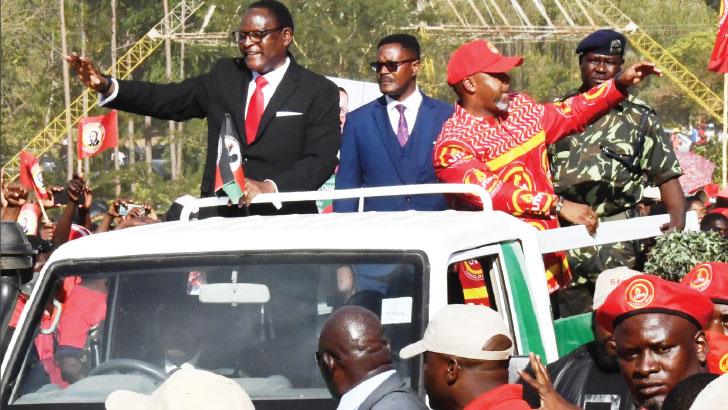Citizens’ trust in governance institutions declines
A new book on democratic governance in the country argues that there is a general decline in public trust of key governance institutions.
The decline, according to authors of the book, is related to government performance and integrity which has had effects on political legitimacy.

The book, ‘Beyond Impunity: New Directions for Governance in Malawi’, has a chapter on ‘Two Decades of Governance in Malawi: Examining Citizen Trust in Malawi From 1999-2019’, is written by governance expert Professor Happy Kayuni and political analyst Joseph Chunga both from the University of Malawi.
The two examined institutions such as Parliament, the Judiciary, the Presidency and Police from 1999 to 2019 largely as part of Afro-barometer surveys.
They examined factors that affect public trust, implications on State legitimacy and prospects of democracy.
During a webinar on the chapter ‘Two Decades of Governance in Malawi: Examining Citizen Trust in Malawi From 1999-2019’, Kayuni said possible explanatory factors for the declining levels of trust are perceptions of government handling of food challenges, management of economy, general performance and levels of corruption.
He said: “With minor exceptions, the trends from 1999 to 2019 show that there has been a general decline in the level of trust [a lot or somewhat] for all institutions.
“It is interesting to note that all institutions received increasing approval or trust between 1999 and 2005. The general reduction mainly started around 2008 to the present.”
Kayuni said significant exceptions are with the Office of the President and Cabinet and the courts.
He said: “The Office of the President has witnessed a substantially significant reduction in trust from 79 percent in 2008 to 29 percent in 2014 followed by another increase to 36 percent and 43 percent in 2017 and 2019 respectively.”
Chunga, on the other hand, said the consequence of such loss of trust has been a declining support for elections, as a method of choosing political leaders and a declining trust in the police and their legitimacy to enforce people’s obedience to the law.
He said: “While it may be argued that Malawians expect too much from their parliamentarians, one needs to appreciate that those are to a greater degree jointly defined and perpetuated by both sides.
“Thus some key explanatory factors or issues that needs to be seriously considered if trust has to be restored.”
Chunga said these may include improving the anti- corruption drive, need for the government to effectively handle food challenges, management of the economy and government to effectively handle general public performance.
Speaking during the first webinar on October 27, one of the editors, associate professor of political and administrative studies at University of Malawi Asiyati Chiweza argued that the mass demonstrations in 2019 were partly driven by deep concern about long-standing social, political and economic problems.
“There is an ever widening divergence between campaign promises and the lack or slow delivery of these promises,” she said.





